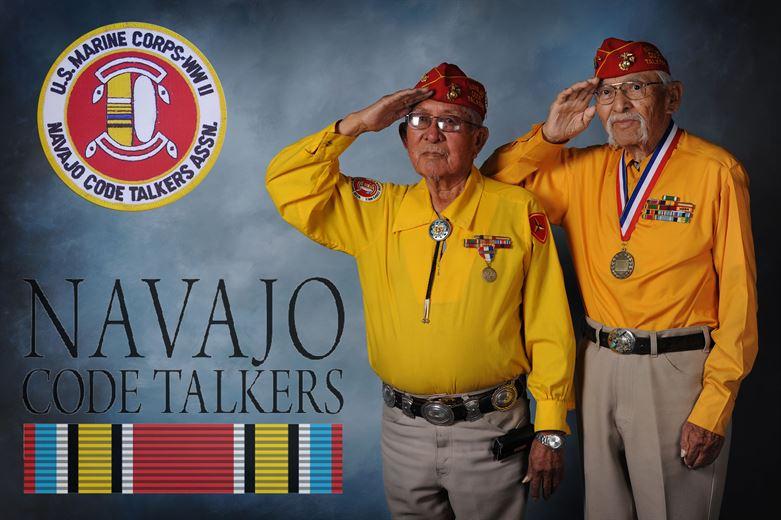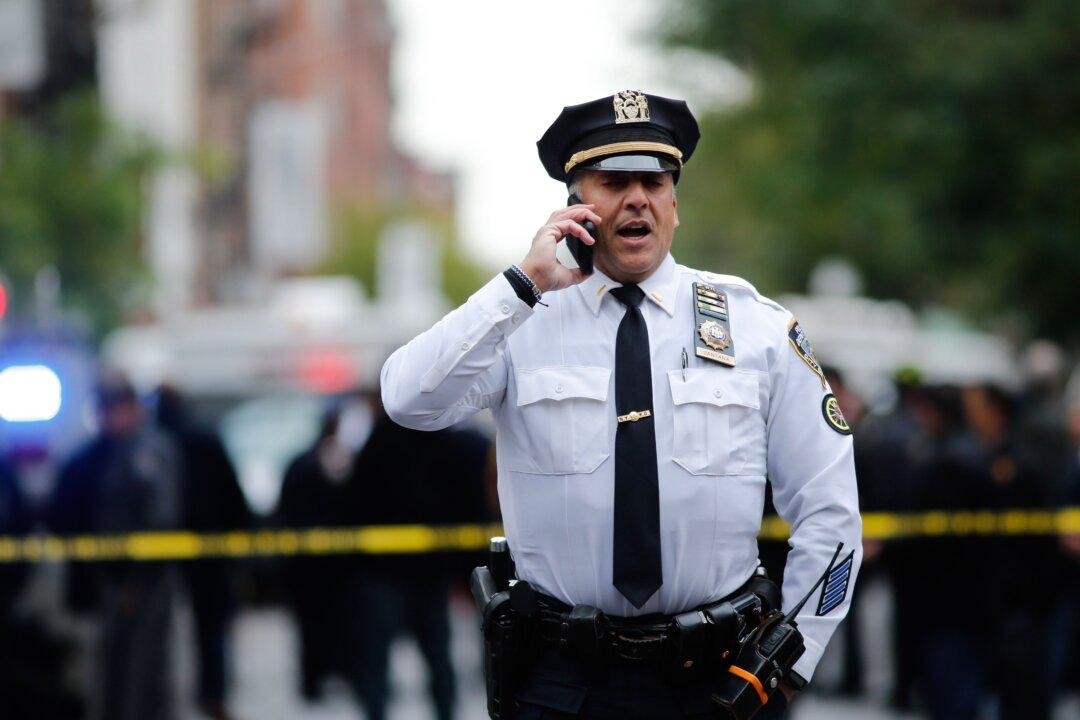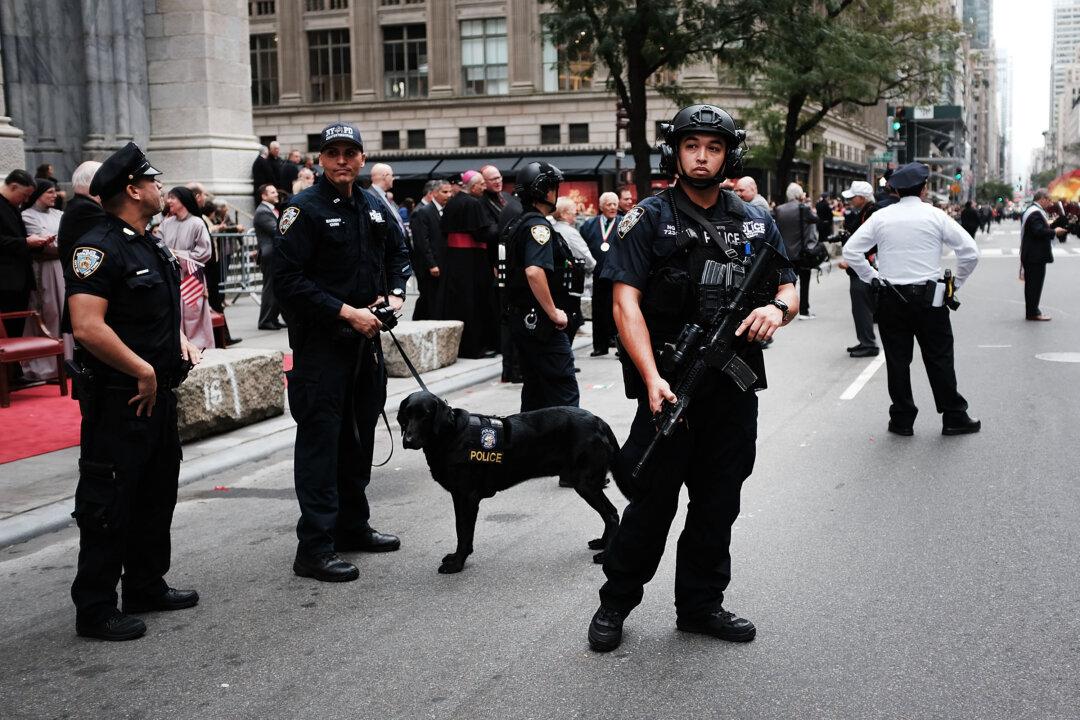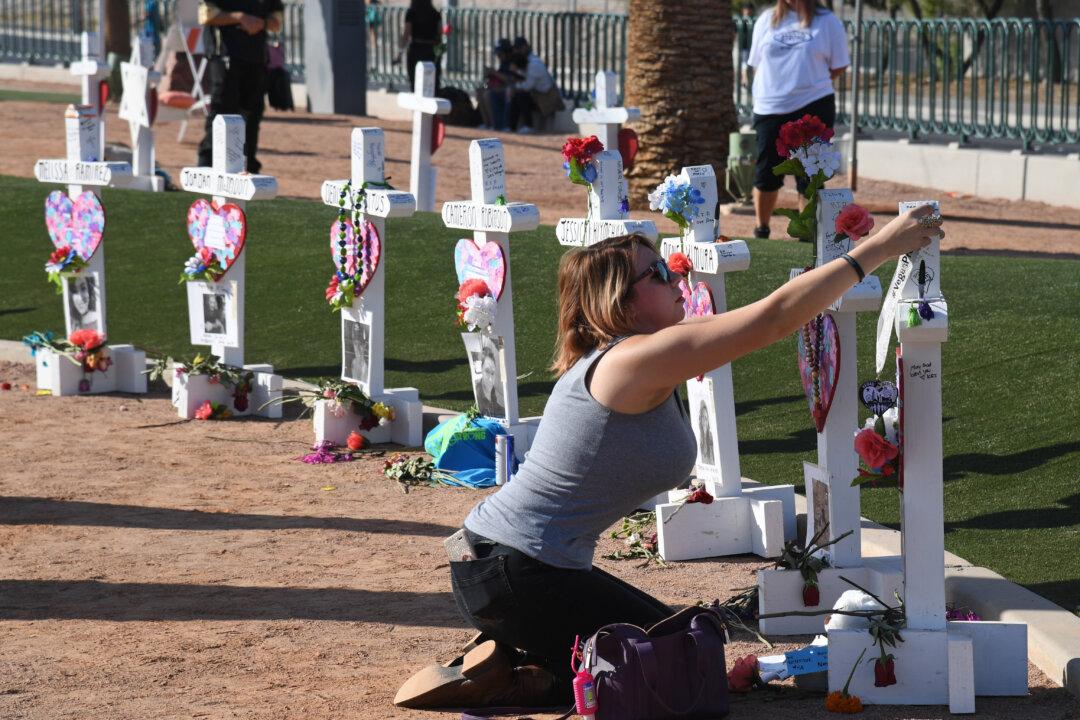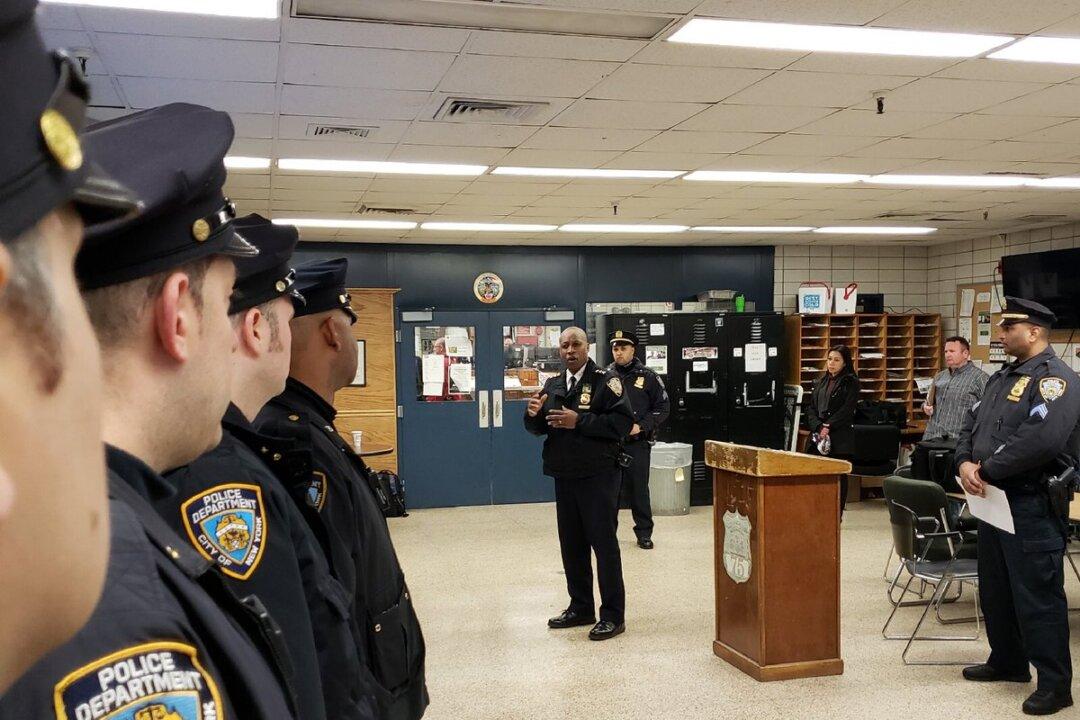According to the Navajo Code Talkers official website, “the Navajo are a Native American tribe, the second largest of its kind as federally recognized … The Navajo people are mostly concentrated in the southwestern United States. Around 300,460 people are enrolled as tribal members according to data available till 2015. There is what we call the Navajo Nation which is an independent governmental body responsible for managing the Navajo reservation. The area under its governance is primarily in the Four Corners area covering 27,000 square miles of Arizona, New Mexico and Utah. Arizona is home to around a hundred and forty thousand Navajo people. New Mexico is home to over a hundred thousand. While the primary language spoken by the people is Navajo, they do speak English.”
Navajo Code Talkers: Defending America
The website also says that the Navajo Code Talkers began on May 4, 1942 when 29 Navajo Indians were sent to San Diego, California. These men would be recruits for a unique U.S. Marine Corps program.Their mission, critical to America’s armed forces during World War II, involved creating an undecipherable code without a written alphabet. The code would be further complicated with common Navajo words having substitutions confined only to memory.
